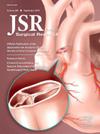From Board Games to Box Trainers: Gamified Feedback in Laparoscopy Training for Medical Students
IF 1.7
3区 医学
Q2 SURGERY
引用次数: 0
Abstract
Introduction
Feedback plays a pivotal role in surgical training. Gamification offers a way to make the feedback process more efficient by automating and expediting feedback delivery, which might otherwise be difficult to provide. Prior data suggest that negative feedback may play a greater role in improving performance on laparoscopic skills tasks, whereas positive feedback may enhance learner satisfaction, confidence, and engagement. Automated immediate feedback systems are a potential gamification tool capable of reinforcing correct behaviors, identifying errors, and fueling motivation for surgical skills practice. By gamifying negative feedback and capitalizing on its immediacy, we investigate whether this approach can lead to changes in practice patterns and enhance learners' motivation to practice. Moreover, this study evaluates the impact of a laparoscopic skills simulator that delivers this automated, immediate, negative-only feedback on medical students’ Fundamentals of Laparoscopic Surgery peg transfer task performance.
Methods
Forty-eight laparoscopy-naïve medical students were randomly divided into two groups: (A) which trained with a modified 'Operation' board game featuring an auditory buzzer and (B) which used the same trainer with the buzzer disabled. Both groups practiced using laparoscopic Maryland dissectors within the box trainer apparatus, with solely the training board features differing. We tracked the total practice time each participant spent with their assigned simulator and measured preintervention and postintervention performance on the Fundamentals of Laparoscopic Surgery peg transfer task (McGill Inanimate System for Training and Evaluation of Laparoscopic Skills metrics).
Results
Fifty-two percent (52%; 25 of 48) of participants used the practice trainer at least once. Both groups practiced the same number of times, but during sessions group B practiced for significantly longer than group A (P = 0.03). Neither the amount of time practiced (B = −0.17, P = 0.44) nor the study group (B = 0.19, P = 0.40) was significantly associated with a greater improvement in performance.
Conclusions
The ‘Operation’ trainer's automated negative-only feedback delivery mechanism discouraged laparoscopic skills practice among novices. While the ‘Operation’ trainer's automated negative-only feedback delivery mechanism decreased novice learners' practice duration at any given session, it did not appear to impact motivation to practice again. Future studies should evaluate the roles of mixed, immediate feedback delivery models and appropriately calibrating task difficulty to achieve desirable difficulty in cultivating practice habits.
从棋盘游戏到盒子训练师:医学生腹腔镜训练中的游戏化反馈
反馈在外科训练中起着至关重要的作用。游戏化提供了一种方法,通过自动化和加速反馈传递,使反馈过程更有效,否则可能很难提供。先前的数据表明,消极反馈可能在提高腹腔镜技能任务的表现方面发挥更大的作用,而积极反馈可能会提高学习者的满意度、信心和参与度。自动即时反馈系统是一种潜在的游戏化工具,能够加强正确的行为,识别错误,并为外科技术实践提供动力。通过游戏化负面反馈并利用其即时性,我们研究了这种方法是否可以改变练习模式并增强学习者的练习动机。此外,本研究评估了腹腔镜技能模拟器的影响,该模拟器提供了这种自动的、即时的、仅限负面的反馈,对医学生的腹腔镜手术支架转移基础任务的表现。方法将48名laparoscopy-naïve医科学生随机分为两组:(A)使用带有听觉蜂鸣器的改良版“操作”棋盘游戏进行训练;(B)使用同样的训练器进行训练,但不使用蜂鸣器。两组都在箱子训练器内使用腹腔镜马里兰解剖器练习,只有训练板的特征不同。我们跟踪了每个参与者在他们指定的模拟器上花费的总练习时间,并测量了干预前和干预后在腹腔镜手术支架转移基础任务中的表现(McGill无生命系统用于腹腔镜技能培训和评估指标)。结果52%(52%,25 / 48)的参与者至少使用过一次训练教练。两组的练习次数相同,但B组的练习时间明显长于A组(P = 0.03)。无论是练习时间(B = - 0.17, P = 0.44)还是研究组(B = 0.19, P = 0.40)都与表现的更大改善没有显著关联。结论“操作”培训师的自动负反馈传递机制阻碍了新手的腹腔镜技能实践。虽然“操作”培训师的自动负面反馈传递机制减少了新手学习者在任何给定会话中的练习时间,但它似乎并没有影响再次练习的动机。未来的研究应评估混合即时反馈传递模型的作用,并适当调整任务难度,以达到培养练习习惯的理想难度。
本文章由计算机程序翻译,如有差异,请以英文原文为准。
求助全文
约1分钟内获得全文
求助全文
来源期刊
CiteScore
3.90
自引率
4.50%
发文量
627
审稿时长
138 days
期刊介绍:
The Journal of Surgical Research: Clinical and Laboratory Investigation publishes original articles concerned with clinical and laboratory investigations relevant to surgical practice and teaching. The journal emphasizes reports of clinical investigations or fundamental research bearing directly on surgical management that will be of general interest to a broad range of surgeons and surgical researchers. The articles presented need not have been the products of surgeons or of surgical laboratories.
The Journal of Surgical Research also features review articles and special articles relating to educational, research, or social issues of interest to the academic surgical community.

 求助内容:
求助内容: 应助结果提醒方式:
应助结果提醒方式:


